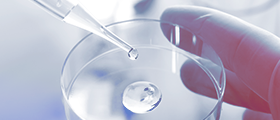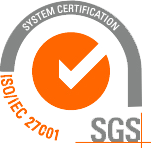SKC
-
CCorporation
 A leading company that strive for the world’s best.
A leading company that strive for the world’s best.
-
CCreation
 Global ESG material solutions company
Global ESG material solutions company
-
CCommunication
 SKC is making efforts to create a better future for all of our partners.
SKC is making efforts to create a better future for all of our partners.
-
CCareer
 SKC is making efforts to create a better future for all of our partners.
SKC is making efforts to create a better future for all of our partners.
To
roll out new PBAT that enhances strength with nanocellulose utilizing wood pulp
and join forces with Daesang and LX International to promote ESG managementAiming
to produce 70,000 tons per year by 2023 and leap toward a global major player
in the eco-friendly material market
SKC (CEO Lee
Wan-jae), together with Daesang (CEO Lim Jung-bae) and LX International (CEO
Yoon Chun-sung), will start the eco-friendly new material, high-strength PBAT
(Polybutylene Adipate Terephthalate) business in earnest and join forces in ESG
management. SKC acquired high-strength PBAT technology from the Korea Research
Institute of Chemical Technology in 2020 and has been preparing for its
commercialization including the development of mass production technology.
On November 23rd,
SKC held a board meeting and decided to invest a total of 104 billion won,
including 79 billion won in technology value, in a joint venture to be
established with Daesang and LX International. Daesang also held a board
meeting on the same day and decided to invest 40 billion won. LX International
held an investment review committee meeting on the 22nd and decided
to invest 36 billion won. The joint venture will build a production facility
with an annual capacity of 70,000 tons in Korea with the goal of
commercialization by 2023. Once
commercialization starts, the joint venture will
become the world's second largest PBAT manufacturer.
The three companies are
committed to expanding the base of biodegradable plastics to solve plastic
issues: SKC will provide high-strength PBAT mass production
technology, operational expertise, and R&D capabilities. By
utilizing its fermentation capability and experience, Daesang, a comprehensive
food company, will supply major PBAT raw materials (BDO, Butanediol) as
biomass-derived raw materials to increase eco-friendliness whereas LX
International will support product sales channels based on its overseas
marketing capabilities and a global network built for more than six decades.
The biodegradable
material market is growing rapidly due to the recent tightening of regulations
on the use of single-use plastics in Europe, in particular, and the spread of
waste plastics issues worldwide. According
to an analysis by a market research institute, the global PBAT market, which
was about 250,000 tons last year, will grow to about 500,000 tons by 2025.
Most notably, the market growth
is accelerating as China and the United States have recently boosted their
efforts to phase out single-use plastics. Accordingly, SKC expects the
potential demand to exceed 2 million tons.
High-strength PBAT, which has fixed
the performance issues of conventional PBAT, has greater growth potential: Conventional
PBAT decomposes 100% in the ground in a short period of time, but it is torn
well, limiting the expansion of its use. By contrast, high-strength PBAT uses
nanocellulose extracted from wood as a reinforcing material, so it has the
strength of conventional plastics. As such, customers have high expectations about the product as an
alternative material for disposable, non-degradable plastics such as straws,
plastic bags, and agricultural mulching films. SKC is in discussions
with more than 20 customers for testing and commercial applications.
Meanwhile, SKC is conducting
a pilot project for agricultural biodegradable mulching film with NongHyup Agribusiness
Group Inc., Hamyang NongHyup, and Ihlshin Chemical. SKC provides high-strength
PBAT to Ihlshin Chemical so that the company can make biodegradable mulching
film and supply it to the onion cultivation complex in Hamyang-gun. Mulching film covering crop-growing soil has to be
collected and disposed of after cultivation. Using biodegradable mulching film
helps solve a shortage of workers as well as environmental problems.
SKC is also
expanding its eco-friendly materials business with a focus on high-strength
PBAT. SKC also applies high-strength PBAT to eco-friendly biodegradable LIMEX,
an upgraded version of regular LIMEX made of plastic and limestone powder, by
applying biodegradable materials such as PBAT instead of plastic, further
enhancing its eco-friendliness. SKC established a joint venture with TBM in
Japan in September and is conducting R&D with the goal of starting mass
production in 2023.
An SKC official
said, "This investment is a decision by the three companies to work
together to create a better future by sharing strengths and promoting the value
of coexistence and symbiosis in business," pledging, “SKC will strengthen
its eco-friendly biodegradable material business and accelerate its pyrolysis
oil business to turn waste plastics into resources while continuing to work
hard to build an ecosystem that contributes to resolving plastic issues.”
[reference photo]

[SKC's
high-strength PBAT material and biodegradable products made of the material]
